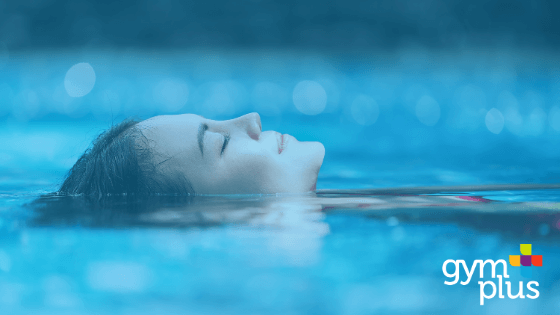Did you know approximately 45% of people will experience a mental health problem at some time during their life? Similar to our physical health, our mental health can change over time and can be affected by a range of factors and events.
Being active has been proven to alleviate the symptoms of many mental health conditions. In fact, research shows that our brains release endorphins which act as a natural mood booster. Exercise stimulates our brain chemicals that foster the growth of nerve cells and affects neurotransmitters such as serotonin that affect our mood.
In fact, from chatting to our Gym Plus members the vast majority tell us that they exercise regularly because of the sense of wellbeing it gives them. From feeling more energetic and positive in their daily lives to sleeping better at night, exercise is a powerful way to combat mental health challenges that everyone experiences at some point.
Swimming for mental health
Although all types of exercise can help improve mental health and positively affect the biochemical changes in the brain, swimming has proven to be particularly effective in reducing the symptoms of anxiety and depression.
In fact, a 2018 YouGov report commissioned by Swim England showed that almost half a million adults have reduced, or no longer take, medication for their mental health condition as a result of swimming. And when questioned about how it affects their mental state, 43% of respondents said it makes them feel happier with 26% saying it helps them stay motivated.
Swimming is a highly versatile exercise suitable for people of all ages, that you can perform at a slow pace, as a way to unwind and relax. Or you can train harder and perform swims at a higher intensity over longer distances and durations. It can get your heart racing and increase your lung capacity as well as clear your mind and alleviate stress. And uniquely it is an exercise that you can enjoy alone, with friends or as a family.

Swimming to calm the body and mind
Swimming as an exercise engages the skeletal muscles, involving stretching and relaxing while focusing on breathing techniques in a rhythmic pattern. These are key elements of practices designed to invoke relaxation.
Similar to yoga, the repetitive nature of swimming using deep breathing can be extremely meditative. And this meditative state can help the brain to achieve sustained focus, essentially helping it to deal with negative thoughts and emotions when stressed.
Healing Powers of Water
Furthermore, the aquatic environment itself can be an extremely calm and tranquil place for those looking for a way to achieve that mind and body connection. Warm water can be relaxing and soothing while cooler water can invigorate the senses and help you feel revitalised.
Some studies have even found that just being in water can increase the blood flow to the brain, suggesting a positive impact on brain health. And healthy blood flow is important for oxygen supply around the body.
And furthermore, the water can be therapeutic if you’re recovering from an injury too. It can help to reduce muscular pain and inflammation in the body. Often stress can lead to back, neck and shoulder tension resulting in stiffness and pain. And swimming is a fantastic way to relieve this tension.

Overcoming fears of the pool
For some people, however, despite their desire to swim there are a number of factors holding them back from doing it. Perhaps it’s a body-conscious issue or they don’t feel confident enough in their swimming abilities. But please don’t let either of these issues stop you from swimming:
- Everyone at the pool is concentrated on their own exercises and they really aren’t concerned with what others look like or are doing.
- But if you want to ease yourself into the routine, why not pop in when the pool is least busy. Giving you the time and space you need to enjoy your session and not worry about others. Simply ask at reception when the quieter swim times are.
- And if you prefer some company while swimming, ask a friend or family member to come along for a swim which will certainly reduce your anxiety about entering a pool alone. Over time you will become more comfortable going alone and less self-conscious entering the pool.
- Alternatively, you could try a water-based class like Aqua Fit first and get some water therapy in a fun, group environment. Meet new people and get a great, low impact workout in one go.
- And if your swimming skills or lack thereof are putting you off swimming or would simply like to improve your technique, why not book in a few private lessons with an instructor first? Our swim coaches at Gym Plus will help you overcome your fears and become a more efficient swimmer.
Finally, mental health is something we all have and we should aim to protect it as best we can. It is a vital part of all of us, in our daily lives and across our lifetime. Good mental health allows us to lead happier lives, build healthy relationships and helps us through difficult times. And swimming has been proven to be powerful medicine for mental health conditions.
If you are interested in trying out any of our pools at Gym Plus and see for yourself how swimming can help you, why not get a free guest pass. Download yours HERE.
And for anyone who wants to become a member of Gym Plus this October, you will get a free gym bag and sweat towel when you join along with your membership.



